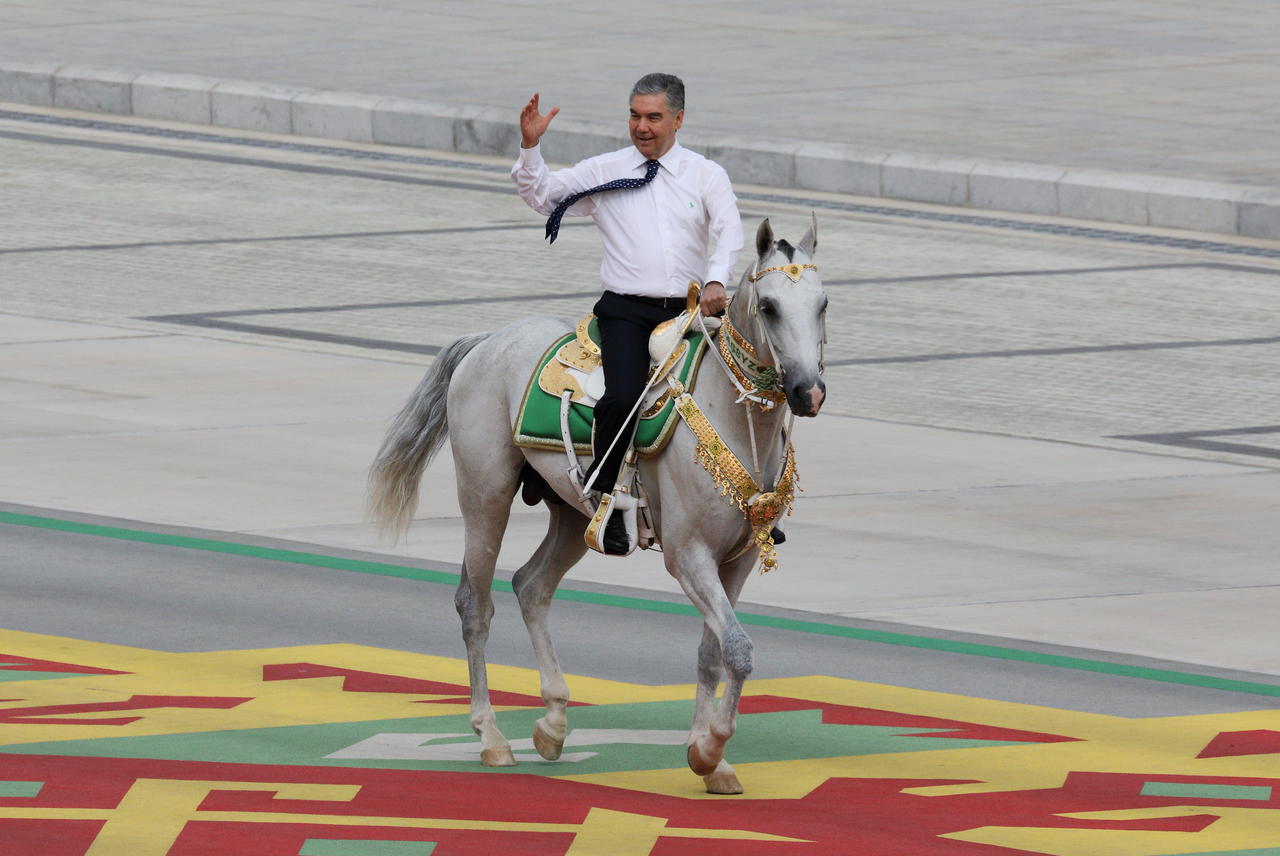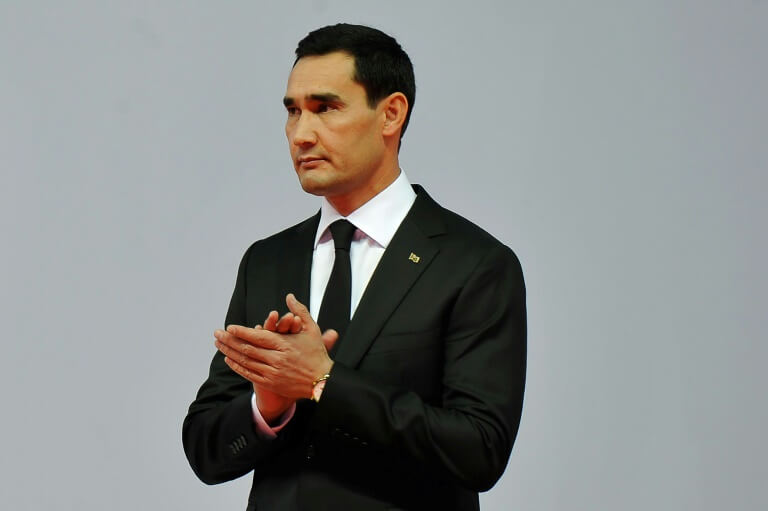Not long after Turkmen President Gurbanguly Berdimuhamedov hinted last week that he planned on resigning soon, the Central Election Commission (CEC) announced that the country will hold presidential elections on March 12. A day later, the ruling Democratic Party of Turkmenistan nominated 40-year-old Serdar Berdimuhamedov, Berdimuhamedov’s son, as its candidate for President.
On February 12, the President told the Halk Maslahaty, or the People’s Council, that young people needed to have a shot at leadership and that he intended to step down as the leader. “I support the idea that the road to public administration at a new stage of our country’s development should be given to young leaders brought up in a spiritual environment and in accordance with the high requirements of modernity,” he told the Council.
CEC officials later stated that the president had given an order to prepare for elections in March. It is widely believed that Berdimuhamedov, who has been ruling Turkmenistan with a heavy hand since 2006, has been planning to transfer power to his son Serdar, who turned 40 last September, which is the legal age required to run for the Presidency.
Unlike his father, who has been vigorously promoting a cult-like following of his family among Turkmenistan nationals and has popularised his image by building statues and palaces, Serdar has cut a far quieter figure. Following his father’s appointment as the country’s leader in 2006, Serdar was given influential roles within the government.
Until 2013, Serdar worked as the head of the state agency responsible for managing Turkmenistan’s vast energy resources. He then officially entered politics in 2016, when he was elected as a member of the parliament. In 2018, he was appointed as Deputy Foreign Minister and a year later, he became the governor of his native province.

Last year, he took over as the country’s Deputy Prime Minister and according to Eurasianet “has increasingly served as his father’s de facto proxy.” Serdar was also appointed as a member of the State Security Council and made chair of the Supreme Control Chamber, the body overseeing government spending, in 2021.
However, it is not clear whether Serdar will introduce a different set of policies and undertake much-needed economic, political, and humanitarian reforms if he comes to power.
Since becoming independent in 1991, Turkmenistan has been categorised as an authoritarian state and has never held free and fair elections. While the country held six elections to select a leader, international observers were not allowed to participate in any of them and, according to several reports, were rigged in favour of the ruling party.
The country was initially ruled by strongman Saparmurat Niyazov from 1991 till his death in 2006, when Berdimuhamedov was appointed leader. Human Rights Watch (HRW) describes Turkmenistan as “among the world’s most repressive and closed countries, where the president and his associates have total control over all aspects of public life.”
In its 2017 World Report, HRW noted that the government ruthlessly “punishes any alternative political or religious expression and exerts total control over access to information.” Methods used to suppress dissent include total control of the media, forced disappearances, and targeting critics living in exile.
In 2020, HRW reported that Turkmenistan discriminates against minority religious groups like Jehovah’s Witnesses, has criminalised same-sex marriages, and restricts the freedom of speech and movement of its citizens. Likewise, in its 2021 Freedom in the World report, Freedom House ranked Turkmenistan as one of the least free countries in the world, along with the likes of Syria and South Sudan.

